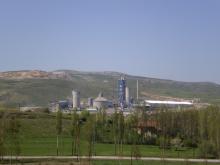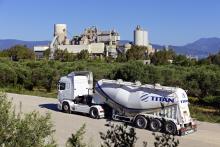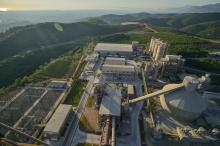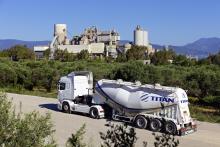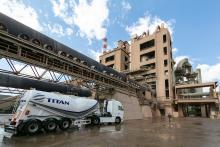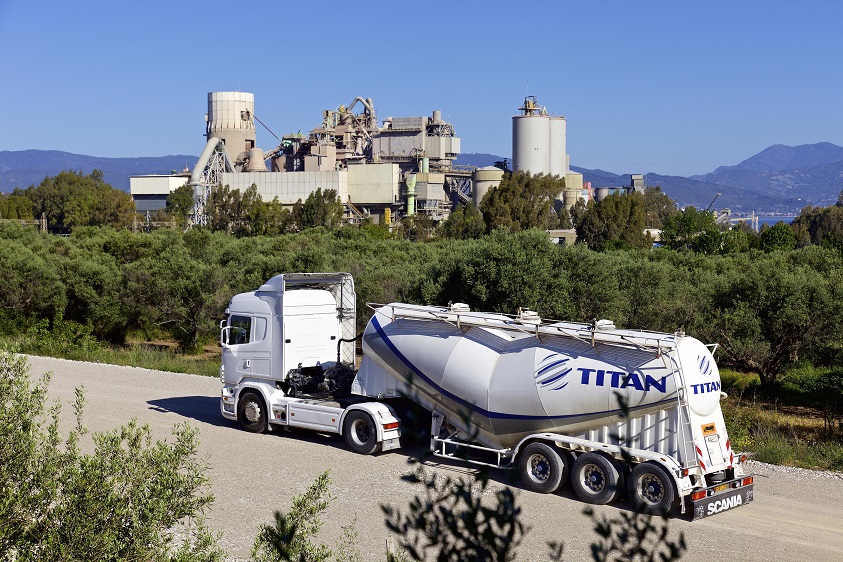
The cement manufacturing group says that cement pricing was firmly upheld, exhibiting low regional variances, while selective price increases were performed in aggregates and ready-mix concrete. Operational efficiencies, as reflected in the group's optimised productivity, improved energy mix performance and increased digitalisation processes in the manufacturing process, have further bolstered the Group’s profitability. Titan says that EBITDA for the period reached €281.4m, increased by 16.7% year-on-year, despite unabated cost pressures in factors such as labour, transportation and raw materials across the regions the group operates in, as well as elevated electricity cost in Greece.
In a period characterised by unfavorable weather across the country, the group says its Titan America operation delivered another stellar performance characterised by solid topline growth and robust profitability for the first half of the year. While cement volumes did not record growth due to works being postponed because of the weather, prices have grown, albeit at a slower pace compared to last year, while prices of ready-mix concrete maintained their positive momentum. Titan America sales in the first six months of 2024 reached €774.6m (US$836m) up by 5.3%, while EBITDA grew to €164.1m (US$177m), up by 21.1% year-on-year.
In Europe, Titan says that the first half of the year was very strong in Greece with volumes of domestic cement, aggregates, ready-mix and mortars, all increasing at a double-digit level. Consumption originated in the residential segment, private projects, and tourism-related investments, characteristic of the period in the run-up to Greece’s main tourist summer season. Large public infrastructure projects have not yet exhibited the traction expected which bodes well for the smoothening out of demand in the post-summer season in the absence of tourism-related building activity. Cement pricing held firm while there were further increases realized downstream in the aggregates, ready-mix and mortars segments.
The total sales for the region of Greece and Western Europe in the first half of 2024 reached €218.5m, up by 10.7% YoY, while EBITDA closed at €30.9m, compared to €36.3m in the same period in 2023.
Marcel Cobuz, chairman of Titan's group executive committee, said: “An outstanding performance of the first half of the year with strong commercial focus and accelerated execution of our Strategy 2026 across our markets. We are set for delivering transformational key projects, creating long term value for all stakeholders, focusing on decarbonization and digitalization, while driving commercial transformation and excellence in serving our customers.”
Titan says the consensus around the outlook of the global economy is tilting towards stable growth and moderate disinflation through 2025. Tight monetary policy should continue to slow growth, even as rate-cutting cycles progress.
Indicators remain volatile: in the US, there have been a few months of downside inflation and upside growth surprises, followed by renewed inflationary pressures while European indicators signal a bottom turning to a moderate recovery, with economic expansion in the south still outpacing growth in northern and western Europe.
Turkey and Egypt, Titan's two high-inflation economies, are set to get closer to normalisation over the year and into 2025.
The outlook for the US economy is characterised by cautious optimism. The economy is projected to sustain its growth, the pace of which will be moderated by any inflation control measures and fiscal policy adjustments. The residential segment should stabilize before starting to record an upside in 2025, however, regions experiencing population growth, such as the southeast coast, may still see robust residential development. The infrastructure segment is poised to continue with further growth, driven by federal and state investments in transportation and energy with significant funding from the “IIJA”, supporting a multi-year tailwind. The growth in industrial and warehouse construction, driven by data centers and supply chain adjustments across the US manufacturing base, should continue as the construction industry benefits from targeted investments and evolving market demand.

